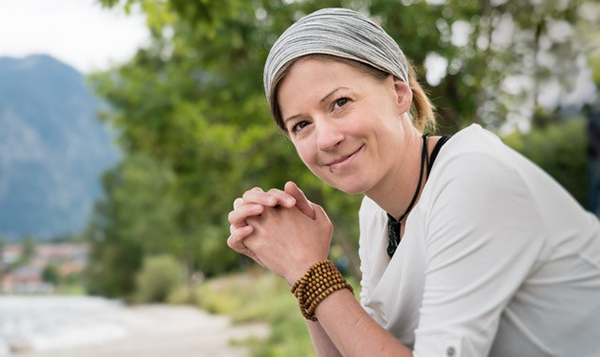Allow every feeling but focus on good things every day

Responding to COVID-19: Interview Series
MHE aims to provide helpful information to as many people as possible on how communities, including experts by experience, service providers, mental health leaders, governments and policy makers, researchers and others, can support people efficiently through the current crisis and beyond.
In this interview series with MHE members and partners, we discuss the impact of the pandemic on their lives and work and which measures they are taking or can be taken to cope with the situation. These testimonies underline the importance of putting mental health higher on the European agenda, during the crisis and afterwards, while offering a personal side and shared expertise for people within the mental health sector, decision makers, and anyone interested in improving mental health for all.
Interview with Dominique de Marné, MHE’s Senior Policy Advisor for Youth and CEO of Mental Health Crowd, a Mental Health Café in Munich, Germany
What impact is the current situation having on your life?
The impact on my private life is indeed limited. Since I am an introvert in general who needs a lot of time to myself, this part of my life remains almost untouched. What I do miss is being able to simply give my friends a hug. In terms of my work, things are different: we opened Germany’s first Mental Health Café in December in Munich. The current situation is disastrous for a starting business like ours. It’s causing a lot of concerns for us. At the moment, my business partner and I are working far more than we usually do.
How are you adjusting your habits?
I’ve barely adjusted my habits. What changed most is that we don’t drive to our store several times a week anymore as we used to before the pandemic. As a person affected by mental ill-health, things like structure, exercise, mindfulness etc. are important for me to stay healthy and stable – not just during corona times but they are part of my daily life. Some things have become digitalised of course: lectures, team meetings or meetings with friends. Although it cannot replace meetings in person, I’m still glad that technology is so advanced. It makes these times easier.
What is helping you?
What helps me is having a daily routine – set times to sleep, get up, work but also to relax, exercise and free time. It is important to allow every feeling and thought. In this extraordinary situation, everything is allowed. I am allowed to be angry and desperate given my business that is on the rocks. It is important not to suppress these feelings but to give them space. Other than that, what helps me is to not compare myself too much with other people – there is no one, right way to deal with this situation. We are all different, and we all need different methods to help us cope right now. Then, of course, it is great to find purpose in my work still. As an advocate for mental health, it is especially interesting to observe which mental implications the pandemic has on people – I am sure the topic is even more important right now than it already is.
What would help you?
Here I can and have to say: money clearly. The financial support we have received from the government so far is not nearly sufficient to balance out our minus. Further aid programmes and support would help us the most. We have launched a crowdfunding campaign, and we are offering virtual cafés. Through this, we are already receiving a lot of support, even though it is unfortunately not enough (yet) to cushion the blow. The more awareness our project and work receive the better are the chances to continue our work after the crisis – to create an environment where we can talk about mental health in the first place, earlier, better and in a more normalised way.
What message of hope could you send to other people that might be going through similar experiences?
Try to focus on good things every day. That is what is helping me at the moment. Focusing on the many things I can be grateful for – whether that be my physical health, my partner, tap water, a sip of coffee or the beautiful light at dusk. In addition to that, the knowledge to live in a country where the worst-case scenario is still by far better than the normal state in other countries; family and friends who support us – we are not alone. And finally, radical acceptance can be helpful. Accepting the situation instead of asking yourself “why?”. You do not have to approve of the situation but stop wasting your energy on thinking “what if”. For everyone working within the mental health sector, this crisis can also be a great opportunity because many people and businesses now for the first time notice that they have mental health. The consequences that curfews & Co have on mental health will stay with us for a long time. Then people and organisations like us will be needed.
Stay connected
Get our latest news, personal stories, research articles, and job opportunities.